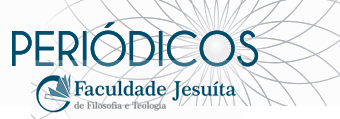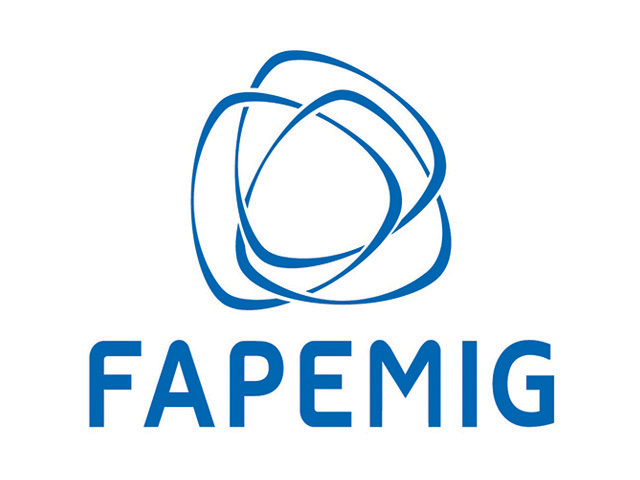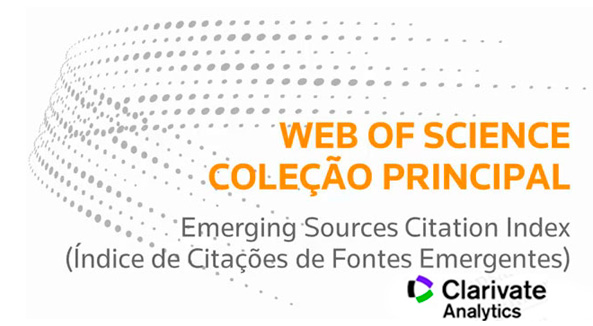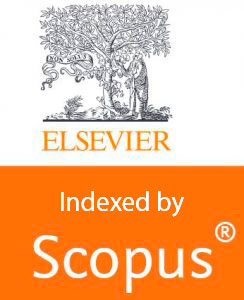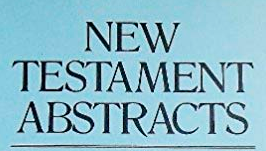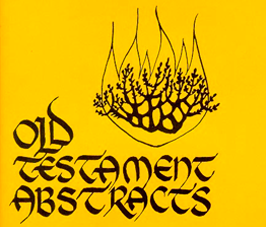About the Journal
PEOPLE
POLICIES
- Focus and Scope
- Section Policies
- Peer Review Process
- Publication Frequency
- Open Access Policy
- Diadorim Directory
- Archiving
- Declaration of ethical code of conduct in publication
- Plagiarism
- Qualis
- DOI - Digital Object Identifier
- Catalog Card
- Standardisation in Perspectiva Teológica (Quotes and Bibliographical References)
- Retraction
- Creative Common License 4.0
- Subscription
- Exchange
- Indexers
- Backup Of The Journal
- Reviewers
- Cover Design
- Policy Of Charges For Processing Of Articles
- Journal Sponsorship
- Journal History
SUBMISSIONS
OTHER
Focus and Scope
Mission
Perspectiva Teológica, rated A1 in QUALIS (Theology and Sciences of Religion), is published on a four-monthly basis. Aims to disseminate the theological reflection (in systematic, biblical and pastoral areas) with proven, scientific quality, being open to ecumenical and inter-religious dialogue, as well as to other fields of scientific knowledge that will contribute to the service of faith and the commitment to justice. Thus, it serves as an instrument of permanent actualization of Theology and clarification of our Christian faith in view of postmodern world problems. Through thematic and diverse articles this publication offers to those who devote themselves to the study of Theology (an) aid for their reflection and theological debate. It also grants to its readers the possibility of aides which, over time, may solidify the reason of their faith and hope (1Pt 3.15).
Articles” Scope
Perspectiva Teológica publishes articles covering these areas: 1. Theology of Christian Praxis (Christian Spirituality, Cultural and Religious Pluralism; Current Ethical Trends). 2. Systematic Theology (Biblical Sources of Christian Tradition; Interpretation of the Christian Tradition on the Current Horizon).
SECTION POLICIES
IN MEMORIAM
Editors
- Aparecida de Vasconcelos
- Suporte Faje
EDITORIAL
ARTICLES
REVIEWS AND NOTICES
FEATURED BOOKS
REVIEWS
BIBLIOGRAPHICAL NOTES
BOOKS RECEIVED
PRESENTATION
NOMINATA
Peer Review Process
DOUBLE BLIND PEER REVIEW
Many factors are taken into account when evaluating of the manuscripts. These include the following: 1) analysis of the adequacy criteria and standards for publication in the Journal Perspectiva Teológica, carried out by the deputy editor. Papers that are not accepted are those that do not present: a) the author and/or co-author with a doctor degree required by a QUALIS A1 journal (except for book reviews which can be written by doctoral students and doctors); b) the standard format of a scientific paper: abstract, key words, introduction, conclusion, references. 2) Preliminary evaluation by the Editorial Board. In this phase, the article is subjected to a plagiarism check application that protects the International Laws of authors” rights and their registration mark, assessment of the relevance, methodological and scientific quality of the text. 3) The papers that successfully pass the preliminary evaluation are then subject to the process of double blind review. The articles are sent, without identifying the author, to two ad hoc reviewers selected among the top scholars in the field from different states or from abroad. The LATTES platform was used to select the referees and subject areas. The reviewer”s opinion will take into consideration the theoretical-critical and methodological dimensions of the text, as well as the contribution of the production, innovation and diffusion of knowledge. The evaluation should be concluded in 30 days. Conflicts between evaluative positions will be resolved by other reviewers and / or members of the Editorial Board. The final decision on any conflict and on the publication of the manuscript is reserved for the Editorial Commission (Director, Editor, Deputy Editor) that will take into account the entire evaluation process and the code of conduct for editorial standards. 4) The conclusion of the evaluation process: the article, once accepted for publication and approved by the author, is then prepared for printing.
After such corrections, the manuscript will be resent to author for the final verification. The entire process between the submission of the article and the final approval could prolong up to four full months.
If any author gives up the evaluation process after the acceptance of her/his article with or without obligatory corrections and then after some months s/he resumes the process, in this case, the text/article will proceed to a new evaluation.
Publication Frequency
Perspectiva Teológica, is a quadrimestral (January/April; May/August; September/December) publication of the Graduate Program in Theology of the Jesuit School of Philosophy and Theology (FAJE).
Open Access Policy
This journal provides free and open access to its contents, following the principle that making scientific knowledge freely available to the public provides greater world-wide democratization of knowledge. More information is available at Public Knowledge Project – Open Journal Systems.
Diadorim Directory
“Perspectiva Teológica” is registered in the Diadorim Directory (Directory of editorial policies of brazilian scientific journals). Access to articles is open, immediate and without embargoes.
For more information, click here.
ARCHIVING
This journal utilizes the LOCKSS system to create a file system distributed among participating libraries, allowing them to create permanent archives of the journal for preservation and restoration. To learn more”¦
Declaration of ethical code of conduct in publication
CODE OF ETHICS AND BEST PRACTICES FOR PUBLICATIONS
(Updated – 2023)
Perspectiva Teológica (Theological Perspective), committed to maintaining the scientific quality of its publications and the standards of ethics in the editorial process, adopts: 1) the standards of the Committee on Publication Ethics (COPE) contained in the Code of Conduct and best practice guidelines (http://publicationethics.org/resources/code-conduct); 2) the International Standards for SciELO Editors (http://www.scielo.br/scielo.php?script=sci_arttext&pid=S0100-15742014000100011; 3) the "Declaration of Copyright/No Conflicts of Interest” (https://www.faje.edu.br/periodicos/index.php/perspectiva/Declaracoes); 4) the “Creative Commons 4.0 International License” (CC BY), (https://creativecommons.org/licenses/by/4.0), which allows the photocopy of the article by third parties since the source is cited (https://www.faje.edu.br/periodicos/index.php/perspectiva/about/#custom-7); 5) the verification of the originality and uniqueness of the text using the "iThenticate Plagiarism Detection Software", protected by international copyright and trademark laws, as well as the veracity of the author's information registered at the time of submission; and, 6) the ethical elements of publication contained in the topic, conditions for submission (https://www.faje.edu.br/periodicos/index.php/perspectiva/about/submissions#authorGuidelines).
Those involved in the editorial process, editors, authors, referees, and reviewers must observe the principles of clarity, objectivity, critical sense, scientific rigor, intellectual honesty, punctuality in the delivery of papers within the required deadlines, and the ethical values of kindness and mutual respect.
Editorial Confidentiality
Responsibilities of the Editor and the Editorial Board
- Keep the editorial policy and standards for publication in the journal up to date, ensuring the effectiveness of its different processes and the requests of the indexing bases.
- Monitor the submission/evaluation process of the articles and the procedures adopted in the Peer Review Process (https://www.faje.edu.br/periodicos/index.php/perspectiva/about/#peerReviewProcess).
- Select duly qualified external reviewers and guide them on what is expected in the process of double blind peer review: a) the focus of the review must take the theoretical-critical and methodological dimensions, and the contribution of the manuscript to the advancement and dissemination of knowledge, into account; b) the final decision on any conflicts and concerning the publication or not of the text is reserved for the Editorial Team, information about this is available in the "Instructions to Authors" (https://www.faje.edu.br/periodicos/index.php/perspectiva/about/submissions#authorGuidelines); and, c) the article to be evaluated must be treated as confidential. This information is available in the Evaluation Form.
- Protect the identity of the reviewers.
- Ensure compliance with the procedures adopted for the evaluation of the manuscripts. This information is available in the document Instructions to Authors, item 1, "Peer Review Process" (https://www.faje.edu.br/periodicos/index.php/perspectiva/about/submissions#authorGuidelines).
- Respond promptly to suggestions and requests from authors, readers and members of the journal committee.
- Take the proper legal actions against any form of misappropriation of intellectual work and problems related to articles already published (see process for identifying misconduct, erratum/retraction).
Authors’ Responsibilities
- Submit the text according to the criteria stated in the "Instructions to Authors" (https://www.faje.edu.br/periodicos/index.php/perspectiva/about/submissions#authorGuidelines). Along with the text, submit the signed Declaration of Copyright and No Conflicts of Interest document (https://www.faje.edu.br/periodicos/index.php/perspectiva/Declaracoes);
- Assume responsibility for the veracity of the statements, opinions and claims contained in the article, as well as the guarantee of originality, as indicated in the "Instructions to Authors" (https://www.faje.edu.br/periodicos/index.php/perspectiva/about/submissions#authorGuidelines).
- Inform the Editors of the role that each author played in the research, when it was done in co-authorship.
- Ensure the exchange of correspondence with the Editors, when necessary, through the following contacts: editor.pt@faje.asav.org.br or through the fields reserved on the submission page itself, in the space "Comments to the Editor".
- Declare the sources of financial support.
- Approve or reject the suggestions of the evaluators to improve the text, and communicate them to the Editor.
- Be aware that the author must grant to Perspectiva Teológica the right to publish his/her work in print and electronically, including them in national and international indexes and databases, as the journal followsthe Creative Commons 4.0 license (CC BY).
- Notify the editors of possible inaccuracies, errors and/or problematic issues related to the content of the submitted and/or published article, cooperating so that a retraction can be made by the author (in case of plagiarism and/or false data) and an erratum by the Editor.
Responsibilities of ad hoc reviewers
- Assist the Editorial Committee in decisions regarding the articles submitted.
- Evaluate the scientific quality of the texts through reasoned, clear and objective reviews and indicate modifications when necessary in order to improve the texts.
- Make sure that the timely evaluation deadline (15 days) is met. If the stipulated deadline cannot be met, notify the Editor immediately.
- Ensure the confidentiality of the evaluation and do not misuse use the material received.
- Notify the Publisher of cases of copyright infringement and/or plagiarism.
Misconduct identification process, erratum/retraction
The following procedures are used to correct ethical problems related to the article and/or other Journal document:
In cases of plagiarism
Following the guidelines of the COPE, when the Editor and/or the reviewer who evaluated the article sees proof of (important) duplicate or redundant publication, the author is asked to provide clarification. In the case of guilt and/or unintentional error, due to lack of clarity of the Instructions to Authors, or inexperience of the author, the article is refused with due explanation of the journal's stance and the behavior expected in the future. If there is no response from the author, the Editor can contact the Institution where they work, informing their superiors of the decision taken by the editorial team. The reviewers are also notified of the decision. In cases of minor textual similarity, the author is asked to reference the original works or to eliminate the similarity. Then, the evaluation continues. Information available at: https://publicationethics.org/files/All_Flowcharts_Spanish_0.pdf.
For the test of textual similarity, the Team adopts the software iThenticate Plagiarism Detection; AntiPlagiarist.
Publication of Errata
According to SciELO instructions, when errors are found in the article or other published document that do not invalidate it, the Editor will make an erratum informing the corrections and/or inclusions of parts of the document. The online version of the journal brings the correction date and the link to the printed erratum. The text must contain: the DOI number of the document that has an error, and other information at the discretion of the Editor, with the url link of the article with the error.
(http://www.scielo.org/local/File/Guia_para_o_registro_e_publicacao_de_Errata.pdf).
Retraction
When a problem has been identified in an article published in the journal, based on the SciELO model, "Guide to the registration and publication of retraction" (https://wp.scielo.org/wp-content/uploads/guia_retratacao.pdf), it is necessary to proceed with the registration and publication of retraction. The text to be retracted must be presented by those responsible, with the justifications, containing the basic data (title, author, affiliation and abstract). It will not be “deleted from the journal where it was originally published”. However, the expression “Retracted Article” will be written in the summary. The PDF of the article will have watermark stripes with the expression “Retracted Article”. This process is monitored by the Editorial Team, the Editorial Committee and the validation of some members of the Editorial Board.
Plagiarism
The application for verification of plagiarism used by the journal, which is protected by international copyright and trademark registration laws, is the iThenticate Plagiarism Detection Software.
Qualis
Perspectiva Teológica is classified by QUALIS as A1 in its area (Philosophy – Theology).
DOI - Digital Object Identifier
The DOI prefix of Perspectiva Teológica and other journals from FAJE is 10.20911/.
The Perspectiva Teologica DOI number has been defined in the following format:
Prefix, ISSN of the electronic version, Volume, Publication number, Initial page of the article, and Current Year.
EX: ( 10.20911/21768757v48n.1p11/2016).
Catalog Card
|
P467 |
Perspectiva Teológica / Departamento de Teologia, Faculdade Jesuíta de Filosofia e Teologia. – v.1, n.1 (1969). - Belo Horizonte: FAJE, 1969-. Quadrimestral 1. Teologia dogmática - Periódicos. 2. Práxis cristã - Periódicos. CDU: 2(05) |
Standardisation in Perspectiva Teológica (Quotes and Bibliographical References)
QUOTES
The short direct quotations (textual, up to three lines) must appear in the text in double quotes. The long direct quotations (more than three lines) must be written in (another) specific paragraph indented 2 cm in regular font size 11, with single line spacing and the space of one line from the previous and subsequent text.
REFERENCE NOTES
They must be typed in the text, in parentheses, following the logic "last name, year and page." If there are two authors with the same last name, add the abbreviation of the name. If more than one literary work of the same year and the same author appears, the year is followed by sequential letters of the alphabet. At the end of the text, show all references.
E.g.: (MIRANDA, 2010, p.37).
(BOFF, C., 2013, p.45).
(BOFF, L., 2003a, p. 76)
(BOFF, L., 2003b, p. 105)
EXPLANATORY NOTES
Avoid NOTES. However, some explanatory notes may be entered below. They must be separated from the text by a line of 5cm with single line spacing, font size 10 and no space between one note and another. They must be alignedby the firstword, leaving the number highlighted.
E.g.: Rm 9, 24-29 is located in the first part of the Letter to the Romans (1, 18 to 11.36), section 9-11, at the end of the first movement of the argument of these three chapters (9.6 to 29).
REFERENCES
For references follow the specific norms of ABNT (Brazilian Association of Technical Standards). The reference of used works appear in a single list after the article is typed in 11 pt font; with single spaces; at the end of each reference leave a blank line; place surnames in alphabetical order. The examples are merely illustrative. Consider the examples below:
(1) From a book by a single author; up to three authors, more than three authors; by an institution:
ABADIE, P. Des héros peu ordinaires: théologie et histoire dans le livre des Juges. 6. ed. Paris: Cerf, 2011.
SKA, J.-L.; SONNET, J.-P.; WÉNIN, A. L”analyse narrative des récits de l”Ancien Testament. Paris: Cerf, 1999.
FARMER, W. R. Et Al. (ED.). Comentário Bíblico Internacional. Estella: Verbo Divino, 1999.
CONSELHO EPISCOPAL LATINO-AMERICANO. Conclusões da III Conferência Geral do Episcopado Latino-americano. Evangelização no presente e no futuro da América Latina. São Paulo: Paulinas, 1979.
(2) From parts of a work with different authors; and/or the same author (observation: enter an underline of six spaces long:
LONGACRE, R. E. Wegatal Forms in Biblical Hebrew Prose. In: BERGEN, R. D. (Ed.). Biblical Hebrew and Discourse Linguistics. Dallas: Summer Institute of Linguistics, 1994. p. 50-98.
LONGACRE, R. E. Weqatal Forms in Biblical Hebrew Prose. In: ______. (Ed.). Biblical Hebrew and Discourse Linguistics. Dallas: Summer Institute of Linguistics, 1994. p. 50-98.
(3) Journal article:
BLENKINSOPP, J. Structure and Style in Judges 13-16. Journal of Biblical Literature, London, v. 82, n. 1, p. 65-76, mar./jun. 1963.
(4) Internet article:
VALENSIN, A. Immanence. Revista Cartazes, Rio de Janeiro, v. 4, n. 2, p. 14-32, 2006. Disponível em: <http://www.archive.org/stream/dictionnaire/2up>. Acesso em: 20 jun.
INSTITUTO BRASILEIRO DE GEOGRAFIA E ESTATÃSTICA. Municípios brasileiros que indicam desmatamento e/ou queimadas. Rio de Janeiro: IBGE, 2002. Disponível em: <http://www.ibge.gov.br/home/presidencia/noticias/images/mapa21.pdf>. Acesso em: 09 ago. 2016.
(5) Entries from a dictionary or quote from a collection volume: entries in non-Latin alphabet should be transliterated in Latin alphabet.
BRAUN, H. Poieõ. In: KITTEL, G.; FRIEDRICH, G. (Ed.). Theologisches Wörterbuch zum Neuen Testament. Stuttgart: W. Kohlhammer, 1979. v. 6, p. 456-483.
(6) Monographs, dissertations and theses:
SANGUINETTI, C. La funzione retorica e teológica di Romani 9 nel contesto della sezione 9-11. 2005. Tese (Doutorado em Teologia) – Pontificia Università della Santa Croce, Roma, 2005.
(7) Works presented at congresses or other academic events:
SOUSA, P. J. N. Leitura econômica, ecológica e teológica de Ap 18,9-20. In: SIMPÓSIO NACIONAL FILOSÓFICO-TEOLÓGICO, 8., 2012, Belo Horizonte. Que fazemos com a Terra que Deus nos confiou? Filosofia, Teologia e Consciência Planetária. Belo Horizonte: FAJE, 2012. 1 CD. ISSN 2176-1337.
(8) Quotes from reviews or book reviews:
RUIZ DE COPEGUI, J. A. A flor impossível: salmos e cantos de esperança. São Paulo: Loyola, 1978. 134 p. Recensão de: LIBANIO, J. B. Síntese, Belo Horizonte, v. 5, n. 13, p. 161-162, abr./jun. 1978.
Retraction
On identifying a problem in an article published in the journal, based on the SciELO model, it is necessary to proceed with the registration and publication of retraction. The text to be corrected should be presented by those responsible, along with the justifications, containing basic data (title, author, affiliation and abstract). It will not be "deleted from the vehicle where it was originally published", however, it will appear in the abstract "[Article Reviewed]". The PDF of the article will have watermark bars with the expression "Article Reviewed". This process is followed by the editorial team, the Editorial Board and the validation of some members of the Editorial Board.
Creative Common License 4.0
Perspectiva Teológica, complies with the Creative Commons International license (CC BY 4.0). By this statement, I (we) grant the permission for others to share, copy and redistribute the material in any format, as well as adapt, remix, transform and build upon the material, even for commercial purposes, provided the source is cited. English version.
Subscription
Subscription, renewal of the Periodical
Please contact us by postal service, e-mail or telefax at Perspectiva Teológica Periodical”s subscription office.
Address: 2127 Dr. Cristiano Guimarães avenue – Planalto – ZIP Code: 31720-300 – Belo Horizonte – MG – Brazil.
E-mail: assinaturas@faje.edu.br
Fax: (outside Brazil: 0055) 31 3115-7098
Data to execute the signature:
Personal name or the corporate institution:
Address:
Neighborhood:
City and state:
Country (if the signature is international):
ZIP CODE:
E-mail (indispensable for being granted the access to the electronic version):
Telephone:
About Payment methods
Subscriptions in Brazil:
1 - By bank transfer (send copy of the receipt by letter, e-mail or fax)
Bank: 341, Itau S / A
Agency: 0689 Pampulha
Current Account: 00314-3
Holder: Associação Jesuita de Educação e Assistência Social
2 - By check made payable to Associação Jesuíta de Educação e Assistência Social (submit the signatures – Perspectiva Teológica, at the address indicated above).
Annual subscription value:
In Brazil: R $ 75,00
Abroad: € 65,00
Purchase a single issues of the Periodical:
In Brazil: R $ 25,00
Abroad: € 30,00
Classification and length of texts
Presentation
It presents the issue, provides ad hoc information and draws attention to important issues that are not in the following texts.
Editorial
Articles
Main articles:
Articles that deal with the central theme of each issue having the experts in their areas of theological knowledge as the authors.
General Articles
Articles that deal with theological themes, different from the main subject of the issue. Also included are reflections arising from other humanities and social sciences that contribute to the debate and deepening of theological dialogue with other areas of science as well as religion.
Book reviews:
They present the contents of works received from publishers, and should provide a sequenced view of that work, concluding with a critical indication of its theological significance.
Short reviews:
Provide information about theological works in order to position the reader regarding the central content of that book.
Exchange
Perspectiva Teológica is connected to various national and international institutions through exchange agreements. Currently, there are exchange system agreements with 192 publications in more than 39 countries of North America, Central America, South America, Europe, Africa and Asia. Thus, Perspectiva Teológica is disseminated in renowned institutions in Brazil and abroad.
Indexers
Perspectiva teológica is indexed in important national and international databases, some of them offering access to 1) complete texts: Periodicos Capes ; SEER (Eletronic Journal Publishing System); Sumários.org ; EZB: Elektronische Zeitschriftenbibliothek ; HSH: Hochschule Hannover . Others, more specialized, offer access to 2) bibliographic databases: ATLA ( American Theological Library Association), Chicago, USA; ATLA CPLI (Atla Catholic Periodical Literature Index) – published by The Catholic Library Association, Haverford, Pennsylvannia, USA; Lists of articles, within their respective fields, appear in NTA (New Testament Abstracts), published by Weston Jesuit School of Theology, Cambridge, Mass., USA and OTA (Old Testament Abstracts), publication of The Catholic Biblical Association, Washington, D. C., USA; CLASE . Citas Latino-Americanas en Sociología, Economía y Humanismo, published by Centro de Información Científica y Humanística, of Universidad Nacional Autónoma, México, DF.
Perspectiva Teologica is also indexed in 3) Collective National and International Catalogues: IBICT CCN (Brazilian Collective National Catalogue); ACNP (Collective Catalogue of Universidade de Bolonha); COPAC (United Kingdom Collective Catalogue); RERO (Western Switzerland Library network); Seriunam (National Hemerographic catalogue of Mexico); SWISSBIB (Swiss Scientific Information); WorldCat/OCLC (World Collective Catalogue). It is in 4) Foreign Library Catalogues with links to full articles, such as : Bibliothekssystem Universität Hamburg; HEIDI (Katalog fur die Bibliotheken der Universitat Heidelberg); Sudoc.aes.fr; Staatsbibliothek Zu Berlin. Also, in the following: 5) Foreign Library Catalogues with acess to references: Bibliotheksverbund Bayern; Universitat Tubingen; BSB: Bayerische Staatsbibliothek; Georg: The Library Of Georgetown University; 6) other Catalogues, Ohio; Tyndale House Biblical Weblink; Academic Resource Index; ZDB; 7) Directories: Latindex (Sistema Regional de Información en Línea para Revistas Científicas de América Latina, el Caribe, España y Portugal (México); Dialnet (Universidad de La Rioja (España).; Diretório Acadêmico do Google; 8) Indices: BIBLAT(Universidad Nacional Autónoma de México (UNAM); Index Religiosus: International Bibliography of Theology, Church History and Religious Studies.
BACKUP OF THE JOURNAL
The backup of the journals is carried out in two ways: the first is a service contracted by the provider that performs a daily backup of the entire site; the second is a monthly backup performed manually by the Jesuit College staff.
REVIEWERS
Abimar Oliveira de Moraes, PPGT, PUC-RJ, Rio de Janeiro, Brasil
Agenor Brighenti, PPGT, PUC-PR, Curitiba, Brasil
Aíla Luzia Pinheiro de Andrade, PPGT, UNICAP, Recife, Brasil
Alfredo Sampaio Costa, PPGT, UNICAP, Recife, Brasil
Ângelo Cardita, Faculté de Théologie, Université Lavall, Québec, Canadá
Carlos Paula de Moraes, UFAC, Rio Branco, Brasil
César Kuzma, PPGT, PUC-RJ, Rio de Janeiro, Brasil
Claudio de Oliveira Ribeiro, PPGCR, UMESP, São Paulo, Brasil
Claudio Vianey Malzoni, PPGCR, UNICAP, Recife, Brasil
Degislando Nóbrega de Lima, PPGCR, UNICAP, Recife, Brasil
Edinei da Rosa Cândido, PPGT, FACASC, Florianópolis, Brasil
Eduardo Rodrigues da Cruz, PPGCR, PUC-SP, São Paulo, Brasil
Eileen FitzGerald, ISET, UCB, Cochabama, Bolívia
Erhard S. Gerstenberger, Philips-Universität, Marburg, Alemanha
Érico João Hammes, PPGT, PUC-RS, Porto Alegre, Brasil
Faustino Luiz Couto Teixeira, PPGCR, UFJF, Juiz de Fora, Brasil
Francisco de Aquino Júnior, UNICAP, Recife, Brasil
Fredy Parra Carrasco, PUC, Santiago, Chile
Haroldo Reimer, PPGCR, UEG, Goiás, Brasil
Horacio Simian-Yofre, PIB, Roma, Itália
Ildefonso Camacho, FTG, Granada, Espanha
Isidoro Mazzarolo, PPGT, PUC-RJ, Rio de Janeiro, Brasil
Ivoni Richter Reimer, PPGCR, PUC-GO, Goiânia, Brasil
João Edênio Reis Valle, PPGCR, PUC-SP, São Paulo, Brasil
João Luiz Correia Júnior, PPGCR, UNICAP, Recife, Brasil
Juan José Tamayo-Acosta, Universidad Carlos III, Madrid, Espanha.
Lauri Emilio Wirth, PPGCR, UMESP, São Paulo, Brasil
Lúcia Pedrosa de Pádua, PPGT, PUC-RJ, Rio de Janeiro, Brasil
Lúcio Álvaro Marques, Departamento de Filosofia, FAM, Mariana, Brasil.
Luiz Carlos Susin, PPGT, PUC-RS, Porto Alegre, Brasil.
Luis Henrique Eloy e Silva, PPGT, PUC-MG, Belo Horizonte, Brasil
Maria Clara Lucchetti Bingemer, PPGT, PUC-RJ, Rio de Janeiro, Brasil
Maria Inês de Castro Millen, Coordenadora de Pesquisa CES, Juiz de Fora, Brasil
Maria de Lourdes Corrêa Lima, PPGT, PUC-RJ, Rio de Janeiro, Brasil
María Marcela Mazzini, PPGT, UCA-ARG, Buenos Aires, Argentina.
María Pilar Aquino, University of San Diego, San Diego, U.S.A.
Mário Antonio Sanches, PPGT, PUC-PR, Curitiba, Brasil
Mário de França Miranda, PPGT, PUC-RJ, Rio de Janeiro, Brasil
Mercedes L. García Bachmann, ISEDET, Buenos Aires, Argentina
Paulo Sérgio Lopes Gonçalves, PPGCR, PUC, Campinas, Brasil
Pedro Lima Vasconcellos, PPGH, UFAL, Maceió, Brasil
Pedro Ribeiro de Oliveira, PPGCR, PUC-MG, Belo Horizonte, Brasil
Roberlei Panasiewicz, PPGCR, PUC-MG, Belo Horizonte, Brasil
Roberto Tomichá Charupá, PPG – Misionología, UCB, Cochabamba, Bolívia
Rodrigo Coppe Caldeira, PPGCR, PUC-MG, Belo Horizonte, Brasil
Rudolf von Sinner, EST , São Leopoldo, Brasil
Sandra Duarte de Souza, PPGCR, UMESP, São Paulo, Brasil
Sergio Sezino Douets Vasconcelos, PPGCR, UNICAP, Recife, Brasil
Silas Guerriero, PPGCR, PUC-SP, São Paulo, Brasil
Urbano Zilles, PPGT, PUC-RS, Porto Alegre, Brasil
Valério Guilherme Schaper, PPGT, PUC-RS, Porto Alegre, Brasil
Valmor da Silva, PPGCR, PUC-GO, Goiânia, Brasil
Víctor Codina, ISET, Universidad Católica Boliviana, Cochabamba, Bolívia
Virgínia Albuquerque de Castro Buarque, PPGH, UFOP, Mariana. Brasil.
Vitor Galdino Feller, FACASC, Florianópolis, Brasil
Volney José Berkenbrock, PPGCR, UFJF, Juiz de Fora, Brasil
COVER DESIGN
Cover (logo): the background, one of the elements of the logo of the Society of Jesus, shows the interconnection of a universal apostolic body. The signs appearing on top of the background, four arrows at different angles converging at the center of the figure, form a cross and convey the mission of the journal to be open to ecumenical and interreligious dialogue, as well as to other fields of science that contribute to the service of faith and the commitment to justice. The title Perspectiva Teológica, written in burgundy letters, expresses one of the values of the Society of Jesus – "tradition".
Graphic Design Project: Érica Rodrigues da Silva
POLICY OF CHARGES FOR PROCESSING OF ARTICLES
This journal does not charge for processing or submitting articles
HISTORY
The journal is published by the Graduate Theology Department of the Jesuit Faculty of Philosophy and Theology (PPGT-FAJE, Belo Horizonte). The printed version (ISSN 0102-4469) has been published regularly and uninterruptedly since 1969, existing, therefore, for 53 years. Since 2008, the journal has also been published in electronic form (ISSN 21768757), and all of its issues are fully available. “The didactic character of the fifty-year history of the Perspectiva Teológica can be divided into 3 phases. The first phase dates from its creation in 1969, when the College of Theology Cristo Rei, of São Leopoldo (RS), completed its twentieth anniversary as a college and joined the then newly-created University of Vale do Rio dos Sinos. The second phase began in 1982, when the College of Theology was installed in Belo Horizonte”. In that year, it received its new cover (2nd). The third phase gained new impetus in the 1990s, with the uninterrupted search for quality, listing in databases, bibliographies, directories, indexes, and with the improvement of technical issues (3rd cover). (Cf.: SUREKI, L. C. “Theological Perspective”: 50 years of theological reflection and ecclesial commitment. Perspectiva Teológica, Belo Horizonte, v. 51, n. 3, p. 15-43, Sep./Dec. 2019. Supplement. https://www.faje.edu.br/periodicos/index.php/perspectiva/article/view/4253
In 2015 It was indexed in the Emerging Sources Citation Index (ESCI).
In 2016, the DOI (Digital Object Identifier) was implemented.
In 2017, all the research content was made available on the website in Portuguese, English and Spanish and the journal received its 4th cover “which is an external expression of internal changes. These concern the firm decision of the editorial team and of the professors of the Department of Theology to consolidate the steps taken, observing strictly the demanding process for quality and adaptation of the journal in order to implement the Capes requirements of periodicals; to seek listing in the reference platforms of international scientific citations and, thus, become a renowned journal in the field” (SUREKI, 2019, p. 19). It was classified in the QUALIS A1 stratum and entered into the ARTS & HUMANITIES CITATION INDEX ( (AHCI), DIADORIM, DOAJ. collections.
In 2018, it achieved success in its national and international indexes. It was indexed in the WEB OF SCIENCE - Arts & Humanities database, in the Open Academic Journals Index - OAJI.NET; in the Free Portal, in the OASISBR Portal, Brazilian Portal of Scientific Periodicals in open access, of the Brazilian Institute of Information in Science and Technology - IBICT). It was listed in the SUNCAT Collective Catalog, in the Global Resources Network online research catalog, and in Scopus, the largest citation database in the world. Also, in 2018, the articles started to adopt the ORCID (Connecting Research and Researchers). According to bibliometric and sociometric studies of scientific production from 1969 to 2019/1, the journal "is the first scientific journal linked to a Graduate Program in Theology of Catholic confession in Brazil, and the second oldest in the country". See: VILLAS BOAS, A.; SERRATO, A. C.; ZDZIARSKI, A. D.; CRUZ, J. A. W. Perspectiva Teológica: memory, identity and frontiers. Bibliometric and sociometric study of scientific production from 1969 to 2019.1. p. 73. Available at: http://www.faje.edu.br/periodicos/index.php/perspectiva/article/view/4246/4308>.



